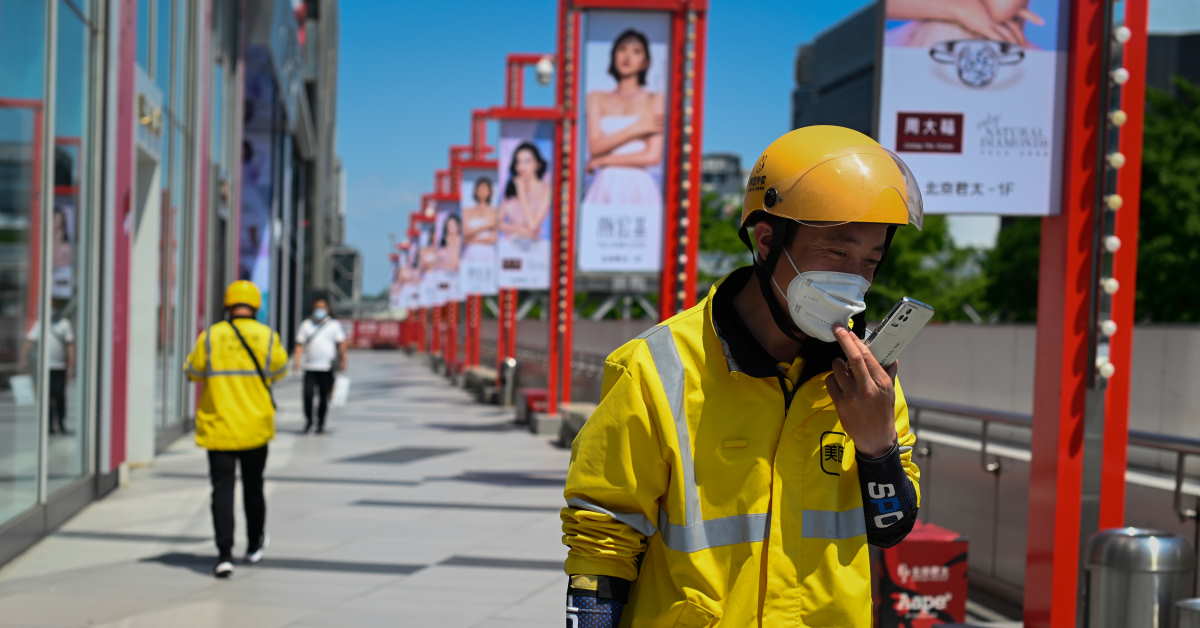China's premier called for greater "urgency" in rolling out measures to support the virus-battered economy, state media reported Wednesday, days after data highlighted the stark impact of COVID-19 restrictions.
China – the last major global economy sticking to a rigid zero-COVID policy – is battling an economic slump due to prolonged virus lockdowns that have constricted supply chains, quelled demand and stalled manufacturing.
"All localities and departments should step up their sense of urgency, and new measures that can be used should be used," Li Keqiang said at a symposium on Wednesday, according to state broadcaster CCTV.
He added that efforts to support the economy should bring it "back to normal quickly" after admitting that indicators have "weakened significantly" since March, with a particular dip in April.
Data on Monday showed retail sales and factory output last month had slumped the most since the start of the pandemic, while unemployment edged back toward its February 2020 peak.
Beijing's unrelenting approach to COVID-19 outbreaks has snarled supply chains and locked down tens of millions of people, hitting major financial, industrial and tourist hubs.
Borders remain closed to most foreigners and a slew of international sports events have been scrapped over pandemic concerns.
But Chinese leader Xi Jinping pledged Wednesday to keep his country open to the world, just days after immigration authorities doubled down on border restrictions.
"China's resolve to open up at a high standard will not change, and... the door of China will open still wider to the world," Xi told a conference on global trade, according to a readout from the foreign ministry.
Beijing has significantly tightened border controls since last year and has said it will only issue new Chinese passports if travel is considered essential.
China has targeted full-year growth of around 5.5 percent, but data published in April showed that first-quarter growth slowed to 4.8 percent after the world's second-biggest economy lost steam in the latter half of last year.
And the economic targets hold a political dimension for Xi, who is eyeing another term in power.
Xi has pinned his legacy on China's strong economic growth and winning the "battle" against COVID-19.
But the current outbreak is the country's worst since the virus emerged in Wuhan in late 2019, and the economy is beginning to weaken.
Tech Support
Li also called for backing Chinese tech companies' bids to list domestically and abroad, a day after Communist Party leaders doubled down on support for the tech sector in a rare meeting with executives.
China's economic slowdown appears to have motivated a softer approach toward the vast, money-spinning tech sector, after an 18-month clampdown driven by fears massive internet companies control too much data and expanded too quickly.
Vice Premier Liu He and other Communist leaders addressed executives and offered support for "the sustainable and healthy development of the platform economy and the private economy," state broadcaster CCTV said Tuesday.
During the tech crackdown, IPOs from Alibaba's Ant Group and Didi Chuxing – China's Uber – were spiked, while millions of dollars of fines over anti-trust and data breaches were ladled out to tech giants.
Chinese tech shares surged late April after officials pledged support for internet firms at a Politburo meeting.
Tech giants including Alibaba, Tencent and Baidu were marginally lower Wednesday morning, with e-commerce behemoth JD slumping over four percent after it recorded a three billion-yuan (US$444 million) loss in first-quarter earnings.
On Wednesday, Tencent reported record-low quarterly revenue growth at nearly zero, reaching the slowest pace since the company went public in 2004.
